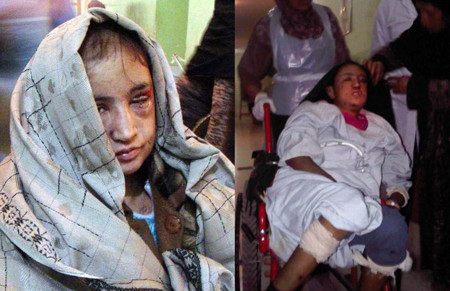The Ottawa Citizen, January 4, 2012
Abuse in Afghanistan
Laws aimed at stopping violence against women will continue to be of little use if they are not taken seriously or enforced
The shocking story of a 15-year-old Afghan child-bride tortured nearly to death after being sent back to her abusive husband and his family illustrates the sad truth that Afghanistan remains one of the worst countries in the world to be a woman, despite the stated intentions of countries like Canada to change things.
Improving the often desperate lives of girls and women in Afghanistan was one of Canada’s priorities in its involvement, through NATO, in Afghanistan. Stories such as that of Sahar Gul suggest that goal was at least a little naive.

Sahar Gul, a 15-year old girl brutally tortured by her in-laws for refusing prostitution. (Photo: RFE/RL)
Lasting gains in equality for Afghan girls and women will have to come from inside, not outside, the country. But, while there is a long way to go before Afghan girls and women actually have real equality, there has been progress.
The reaction to Sahar Gul’s case is one of the signs that things are beginning to change, although not nearly quickly enough.
There are plenty of incentives — even beyond the moral imperative — for Afghans to improve human rights for all citizens. Countries that prevent 50 per cent of their population from fully participating in society suffer economically as a result. Economic development and human rights, especially the rights of girls and women, are closely tied.
The case of 15-year-old Sahar Gul is as much a story of brutal criminal behaviour and government incompetence as it is of inequality. She escaped after her husband, a soldier she was married off to as a child, tried to force her into prostitution. Local authorities sent her back to the situation, where she was tortured almost to death.
Laws aimed at stopping violence against women will continue to be of little use if they are not taken seriously or enforced — or worse, if the institutions themselves are complicit. Only a small number of reported crimes against women are investigated, according to a UN report.
When will that change? When enough Afghans demand it does. The outrage over Sahar Gul’s case throughout Afghanistan suggests inept, corrupt and ambivalent government officials will increasingly be called to account for not enforcing laws aimed at eliminating violence and discrimination against girls and women.
There is still a long way to go, but that is a promising start.
Characters Count: 2852
